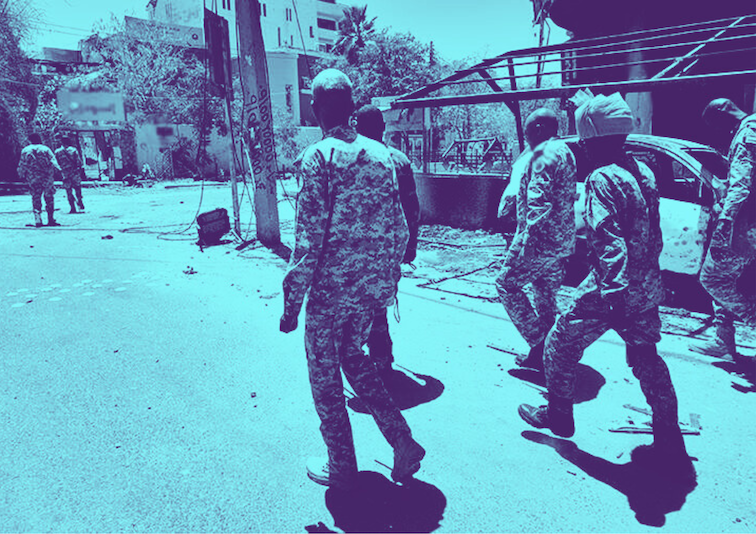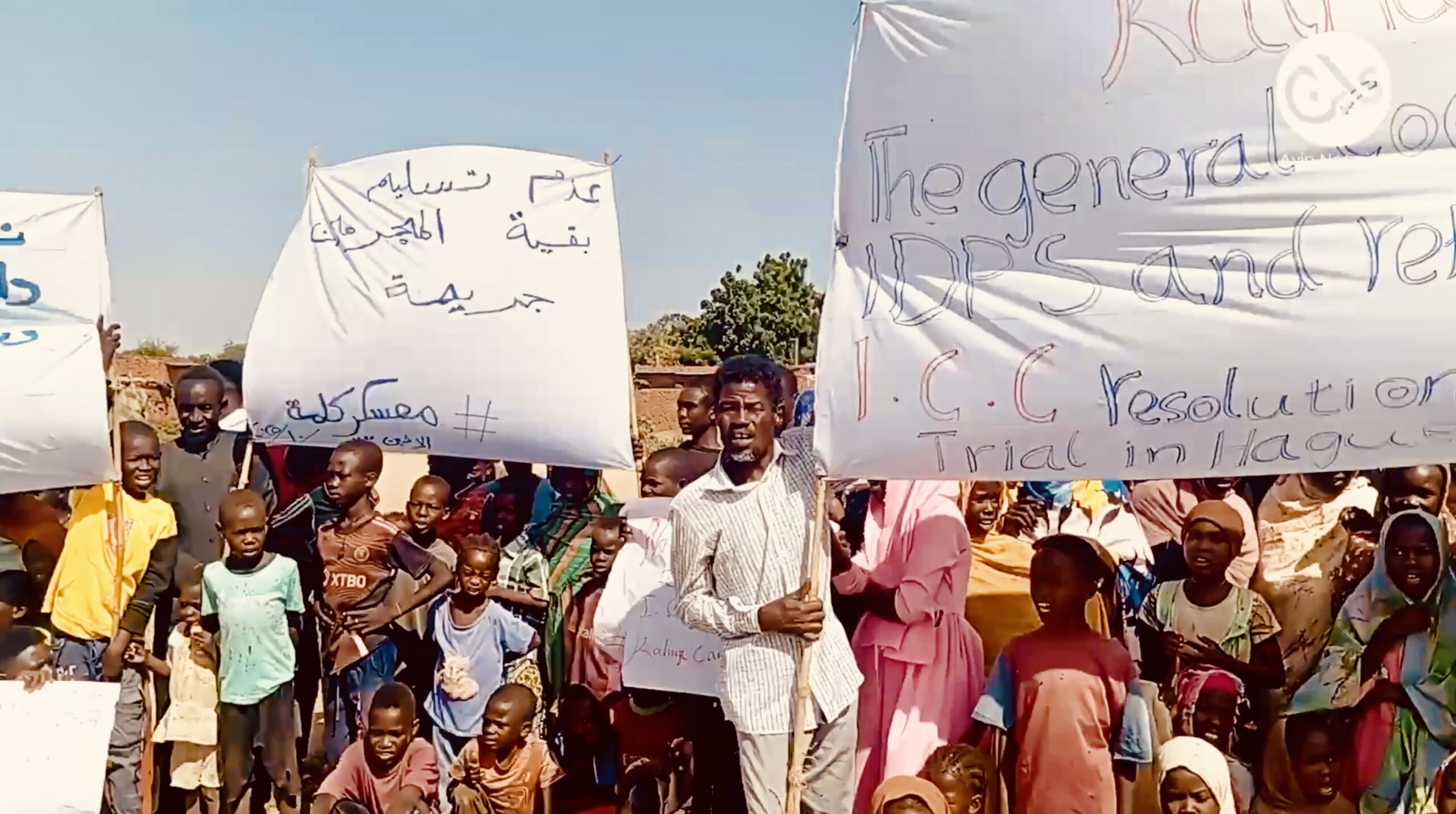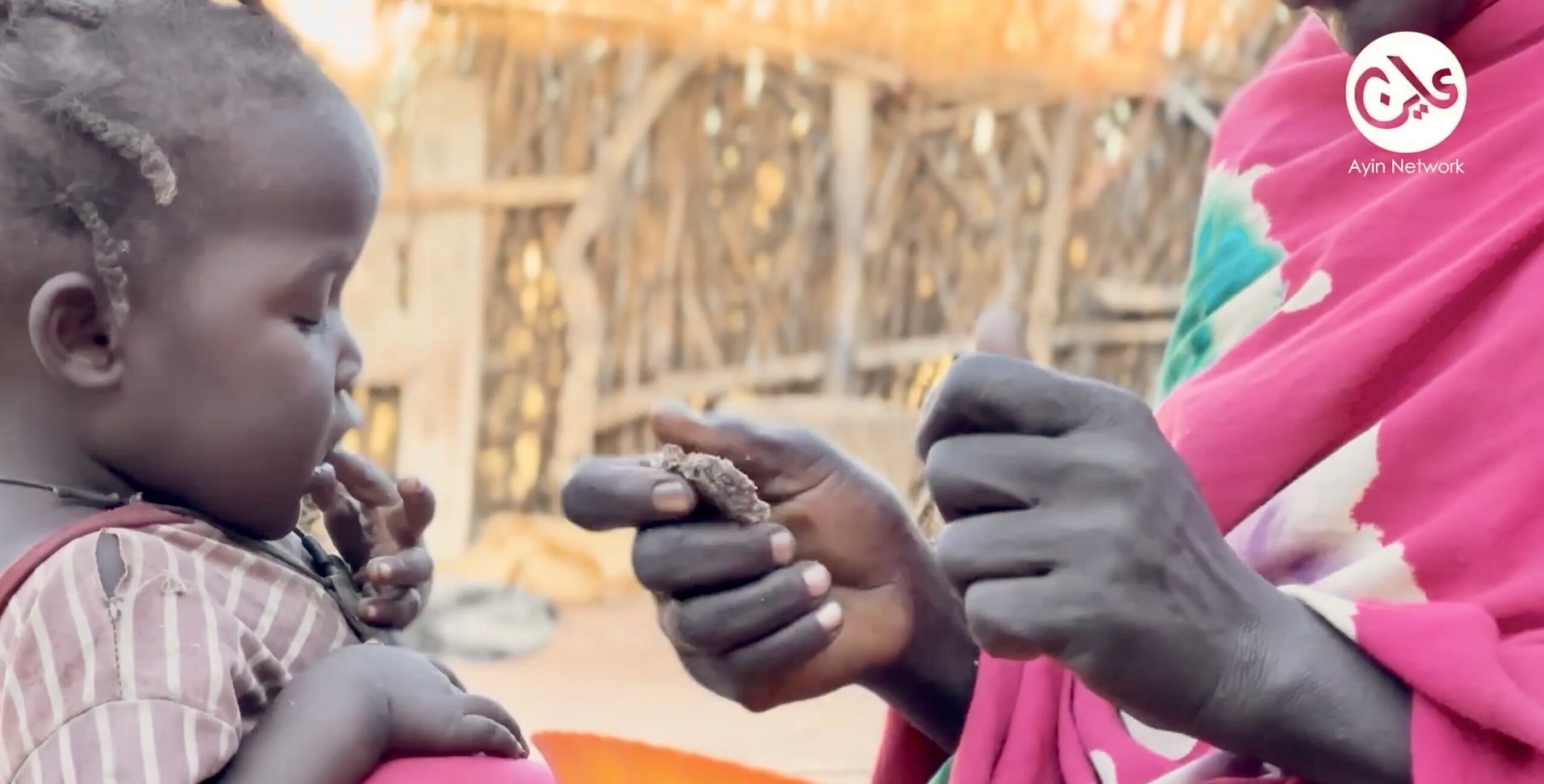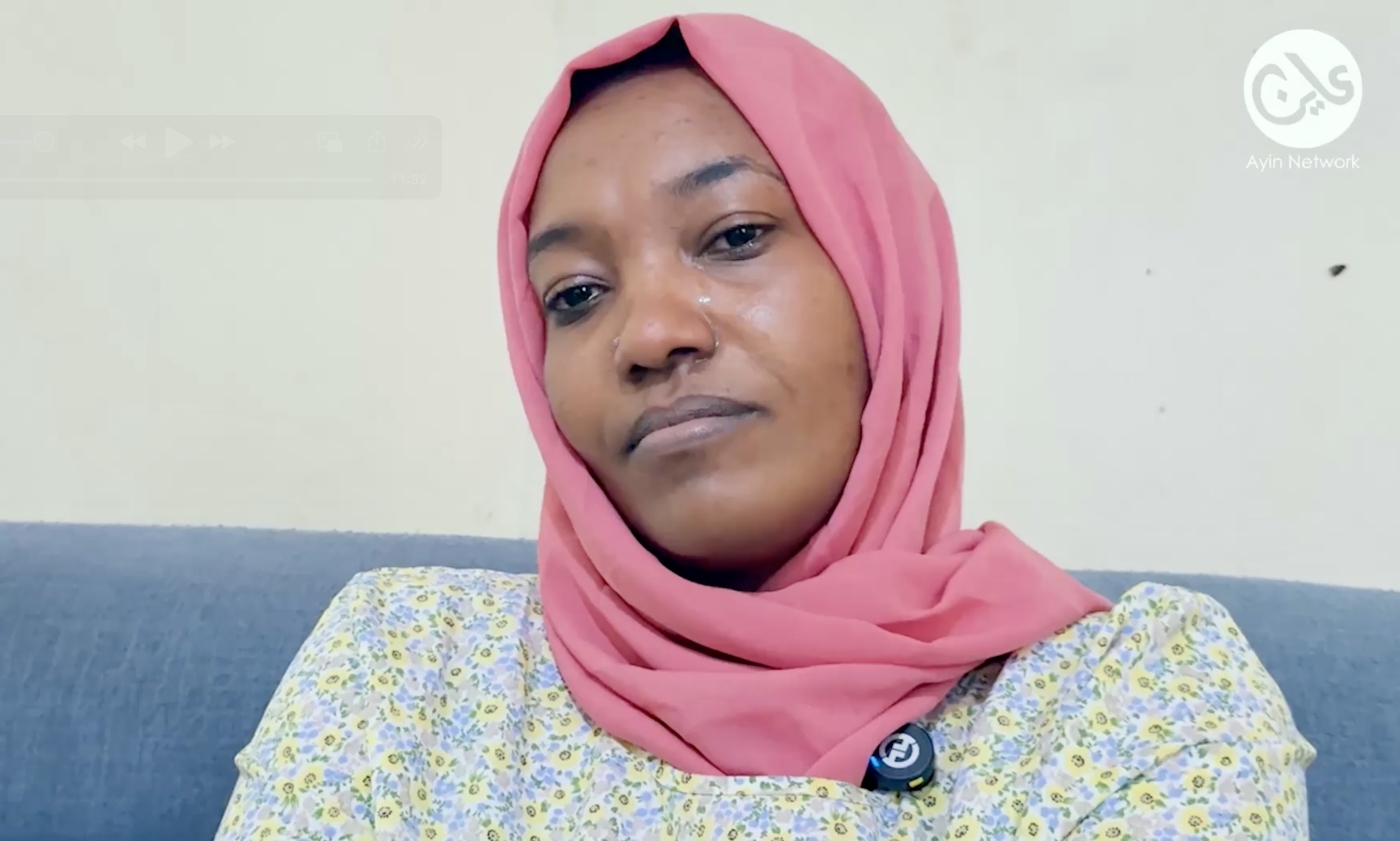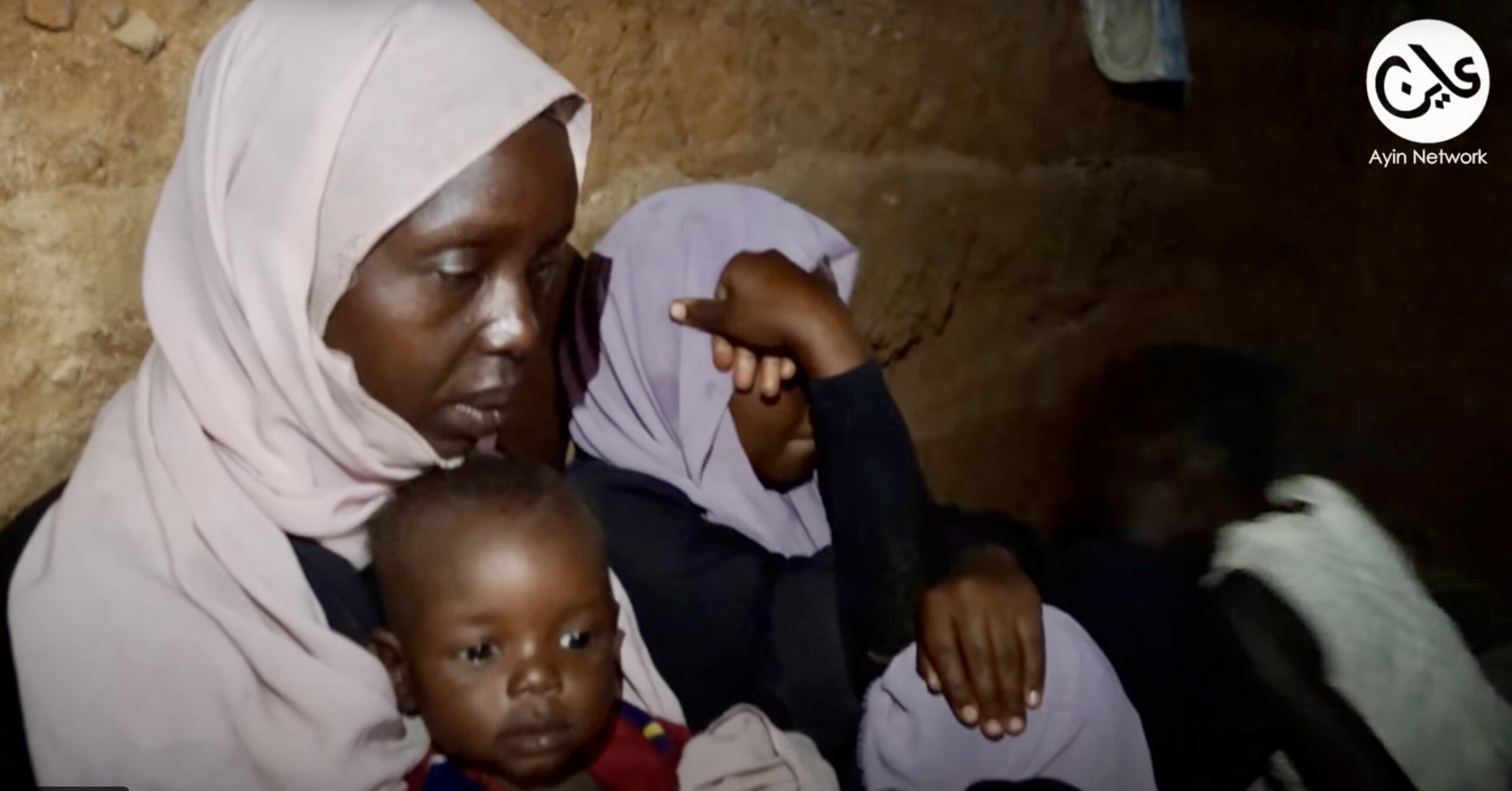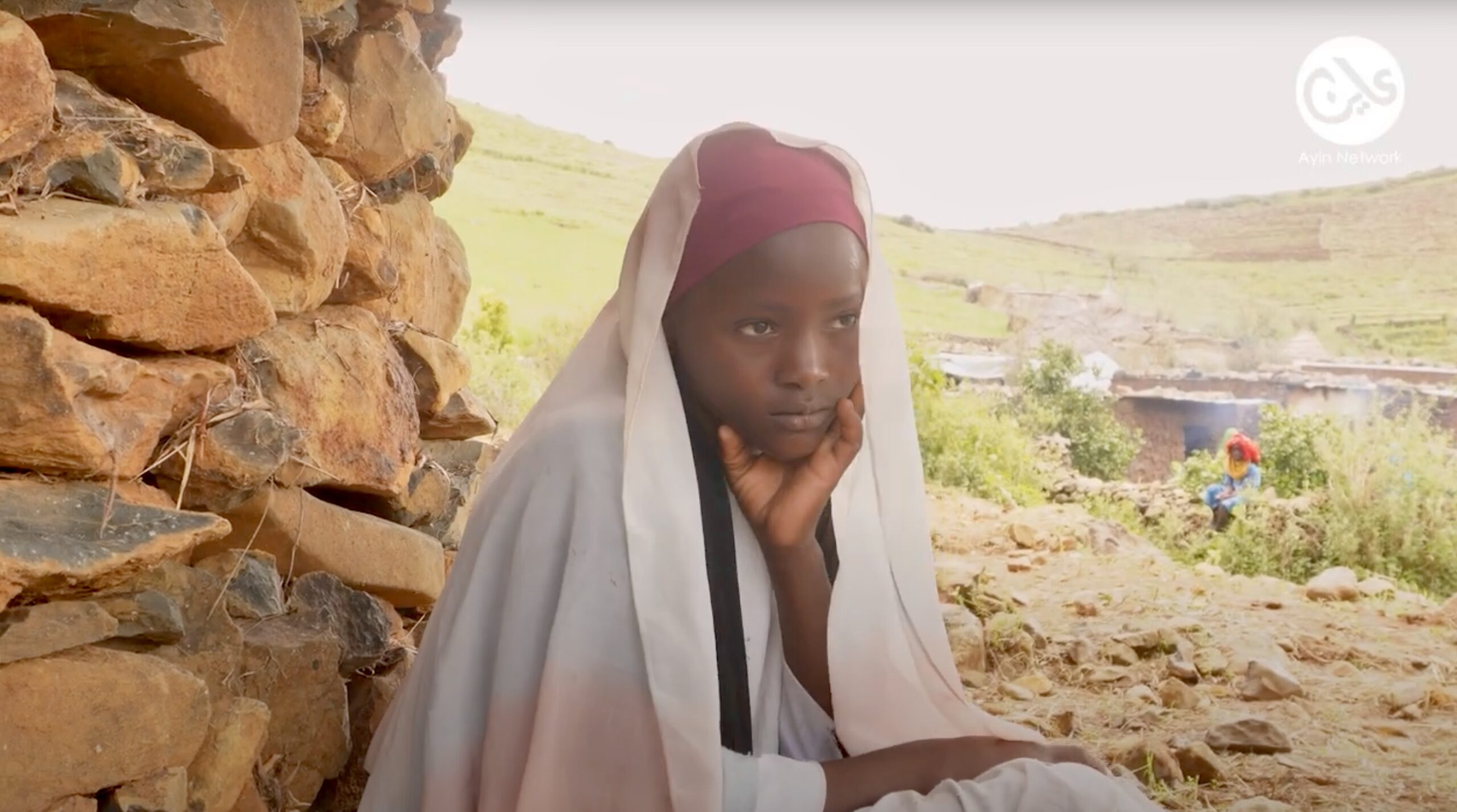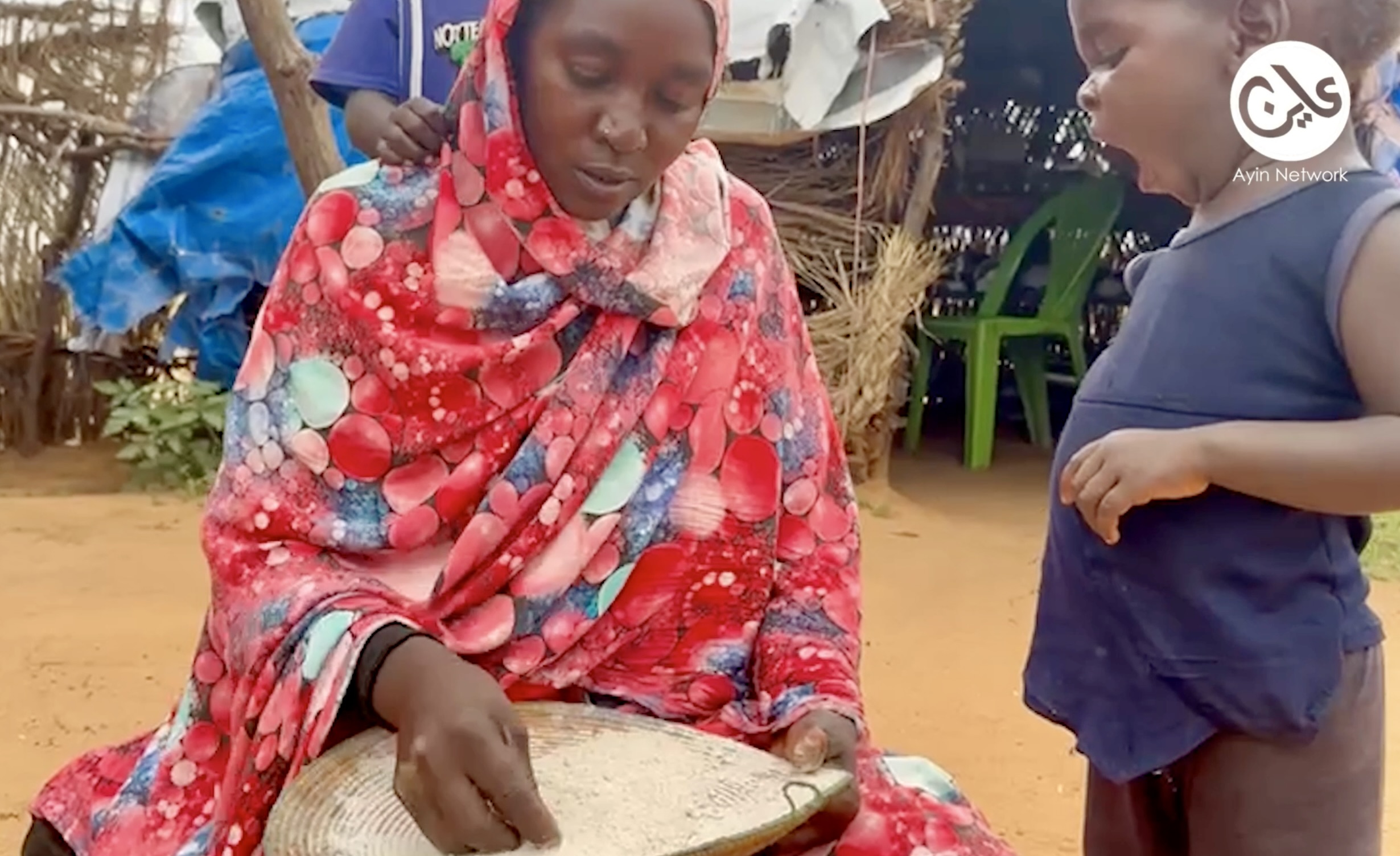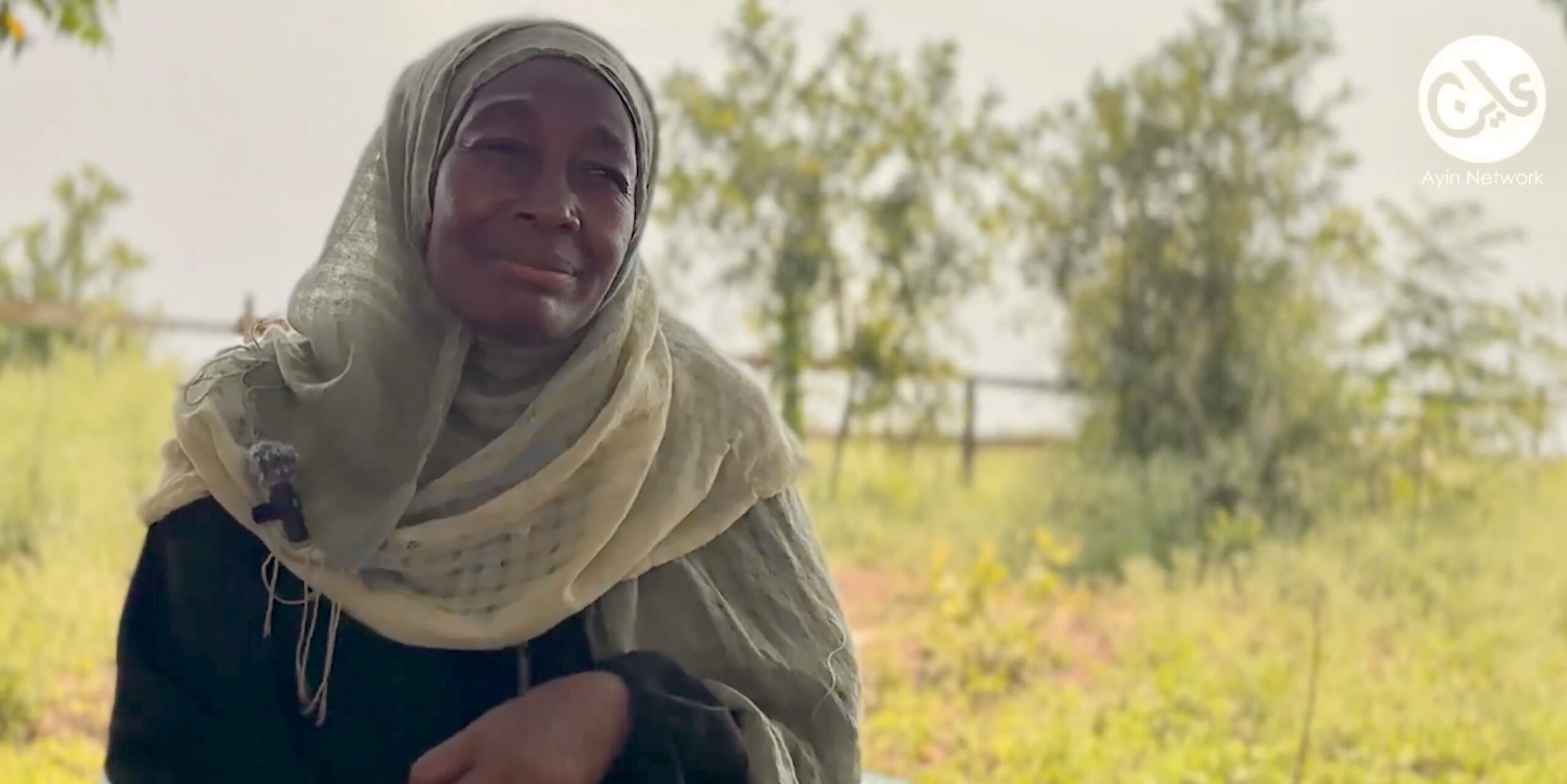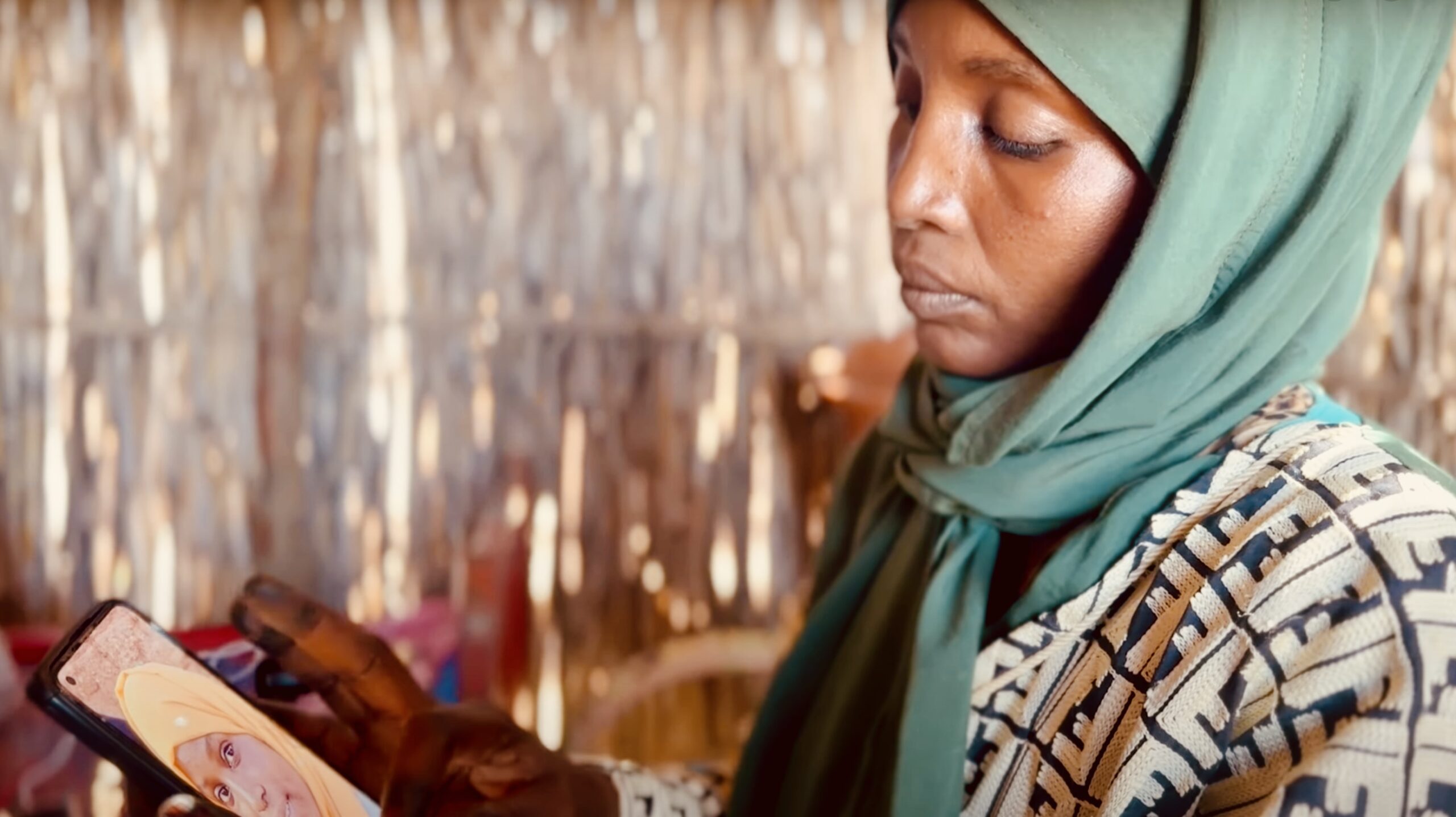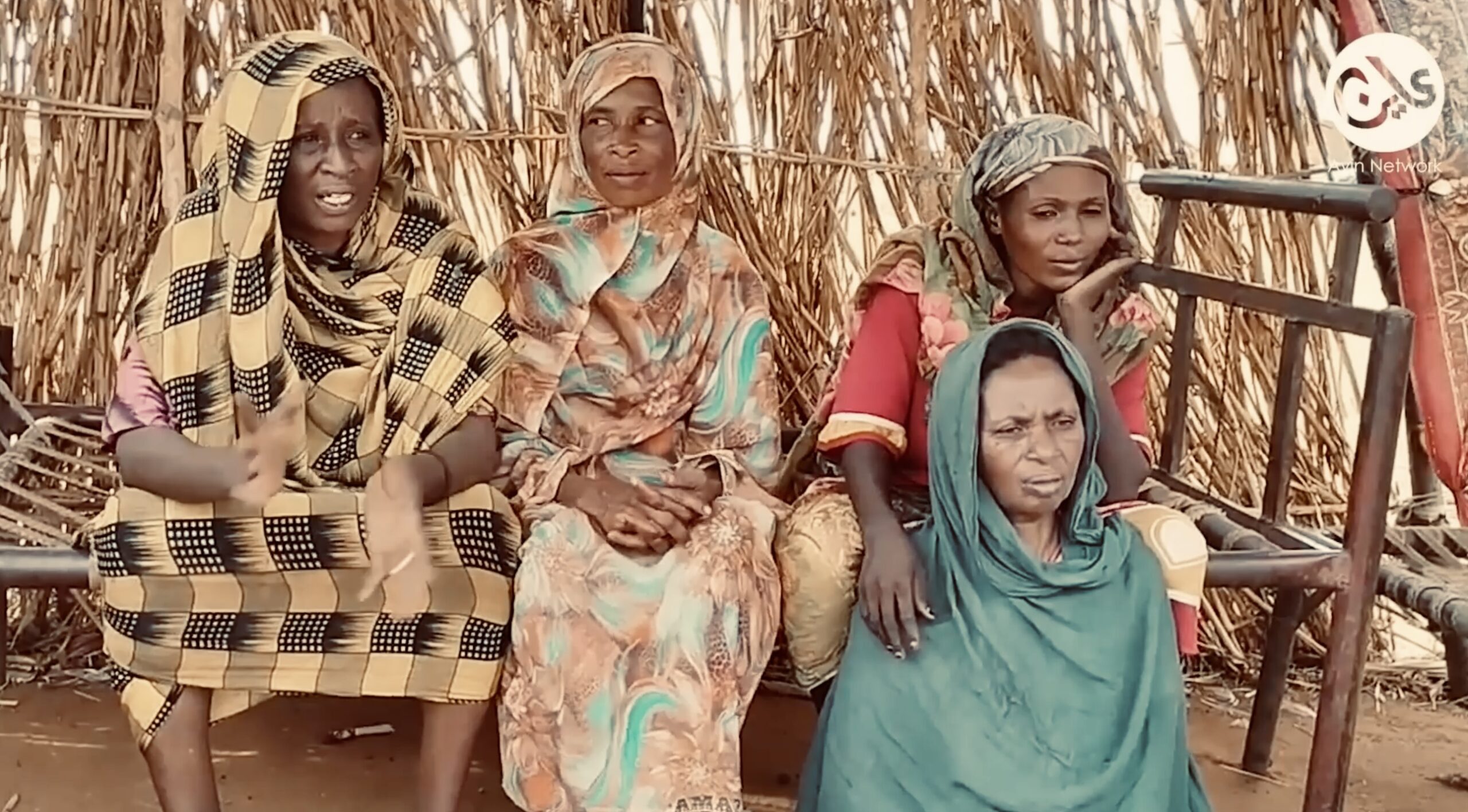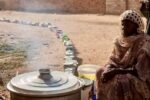Mass executions as Sudan’s army gains ground in the capital
16 April 2025
Soldiers from Sudan’s national army dragged a wounded ex-combatant through the streets in Umbdada, Omdurman, late last month while another soldier filmed the incident. The soldiers then shot the man repeatedly in a ditch and cut the victim’s head off with a knife while his compatriates cheered.
This incident, caught on film, can be verified. Sources in the capital Khartoum and its sister city, Omdurman, told Ayin that these incidents are not unique and continue as the war between the army and the paramilitary Rapid Support Forces (RSF) enters its third year.
The Sudanese Armed Forces (SAF) carried out executions against prisoners of war as well as civilians accused of working with the Rapid Support Forces (RSF) as they advanced throughout central Sudan, including the capital area. Army soldiers and allied militias have also targeted individuals from certain ethnic backgrounds, accusing them as adversaries of the state.
“In some cases the army is targeting combatants,” a volunteer with the Emergency Response Rooms in eastern Khartoum told Ayin. “In other cases, people are being killed simply for being in RSF-controlled areas. It is possible to target anyone at any time for no apparent reason.
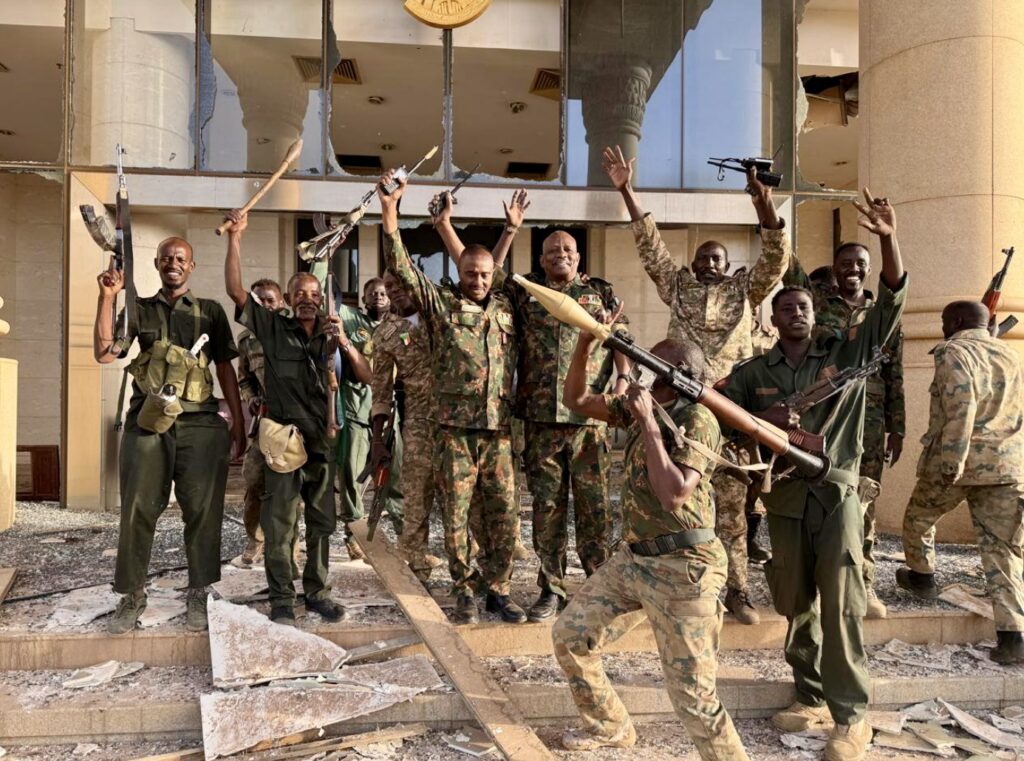
Executions
According to local sources, in late March to early April, the army executed dozens of citizens in southern Khartoum and eastern Nile areas on charges of collaborating with the Rapid Support Forces. “We have confirmed that more than 10 citizens were killed by the army in Haj Youssef, including two bakery workers, a grocery store owner, and a tea seller who were slaughtered, in addition to another family who was killed inside their home,” said another volunteer working in East Khartoum. “The killing of civilians in East Nile has been widespread, and it’s difficult to arrive at accurate figures,” he added. “Army personnel have turned the Barona Carton Square, after Market 6 on the way to Wadi Al-Akhdar, which was used for traditional wrestling, into a place to slaughter civilians and dispose of their bodies.”
In southern Khartoum, a local source confirmed to Ayin that the army killed more than 20 young men in the South Belt area on charges of collaborating with the Rapid Support Forces. Dozens more were arrested, and their fate remains unknown. These cases were confirmed by the United Nations High Commissioner for Human Rights, Volker Türk, as well as by the Emergency Lawyers for Human Rights Group in Sudan.
“I am utterly appalled by the credible reports of numerous incidents of summary executions of civilians in several areas of Khartoum on apparent suspicions that they were collaborating with the Rapid Support Forces,” Türk said in a statement.
A recent investigation by Sudan War Monitor also noted a disturbing trend whereby army soldiers mistreat the bodies of the dead. “Thus far, Sudan War Monitor can confirm two known incidents of beheadings (with three victims total), one case of disembowelling, two cases where bodies were hung upside down and half-naked in a public square, and several incidents where victims were shot or disposed of in the river.”
“I am utterly appalled by the credible reports of numerous incidents of summary executions of civilians in several areas of Khartoum on apparent suspicions that they were collaborating with the Rapid Support Forces”
— United Nations High Commissioner for Human Rights, Volker Türk
The Minister of Interior in the army-controlled Port Sudan government, Khalil Pahsa, acknowledged the executions of those collaborating with the RSF, saying they were individual actions and not an official directive.
He stated that Sudan is a country that respects human rights and the rule of law, noting that 950 people accused of collaborating with the RSF in Wad Medani will be brought to fair trials.
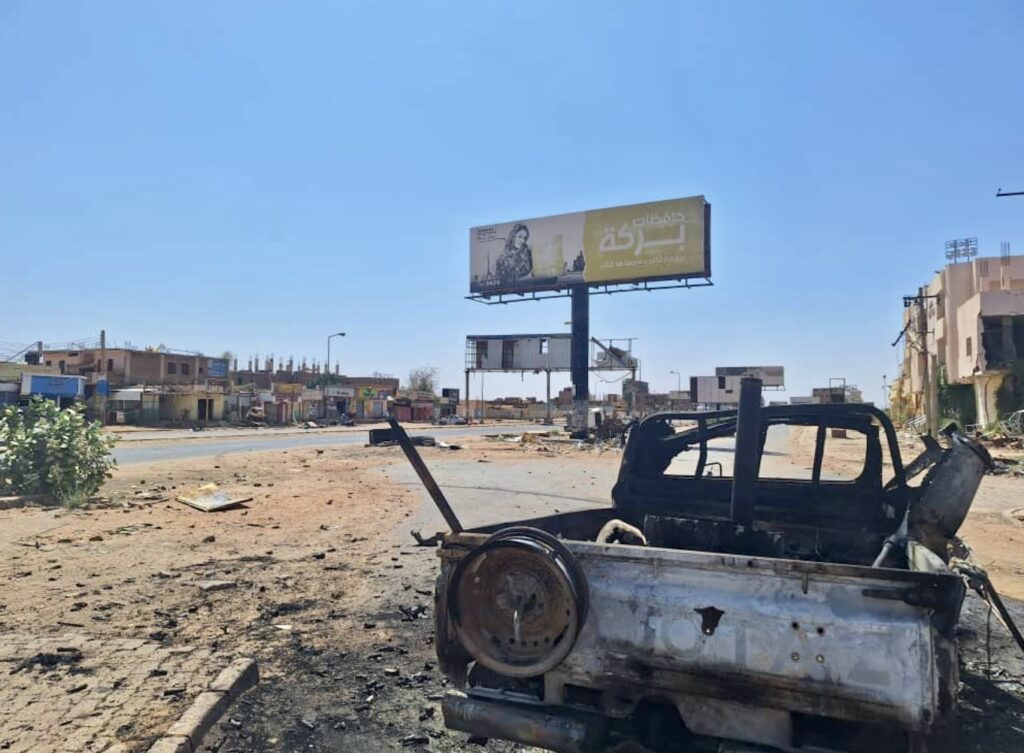
War crimes
But given Sudan’s poor track record of holding perpetrators to account, few legal experts garner hope of victims of human rights violations achieving any form of justice. Several experts unanimously told Ayin that the actions of both warring parties constitute war crimes. Holding these parties to account within Sudan, however, is not currently untenable.
Human rights lawyer Amir Mohammed Suleiman stressed that the existing judicial system in Sudan cannot achieve justice because it is subordinate to the warring parties, whether the army-controlled government in Port Sudan or the RSF, which claims to have opened prosecution offices in areas under its control but has shown no signs so far of adhering to any kind of law. “Both parties are not qualified to achieve justice, which necessitates the existence of an independent body and a special or mixed court, staffed by foreign legal experts and qualified Sudanese judges,” he said. Mohammed referred to several post-conflict justice systems developed elsewhere as potential models for Sudan, including those established in Rwanda and the former Yugoslavia.
Despite the challenges in the current context, Mohammed stressed the importance of achieving justice and redress for victims and their families. “There has been no prosecution of perpetrators of crimes during any of Sudan’s conflicts, including the current one, so the cycle of violence continues to this day.” Accountability for war crimes, he added, should be a fundamental element of any future peace process. “Without it, we will fall back into the vicious cycle of violence once more.”
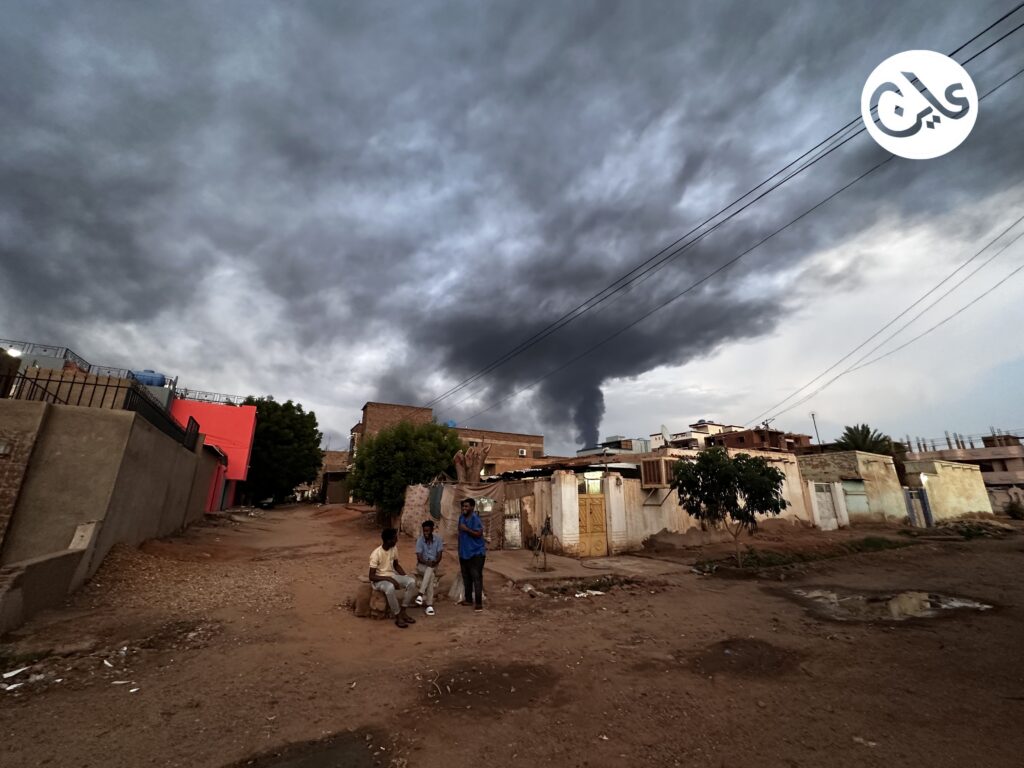
Gondahar Market, Omdurman
After overtaking Khartoum in late March, Sudan’s army has now captured Gondahar market in the capital’s sister city, Omdurman, according to a statement by army spokesman Brig. Gen. Nabil Abdalla. Located in Umbada, the area was an RSF stronghold where the paramilitary force would launch attacks on other areas of Omdurman, including the Sabreen Market in early February, killing at least 60 people. According to Sudan War Monitor, it was also used as a launch pad for drone attacks in the capital area and, more recently, in northern states of the country.
While a strategic victory for the army that allows their forces greater access to western Sudan, it remains to be seen whether civilians in this area, trapped amidst the fighting, will see this military advance as a form of liberation or persecution.




